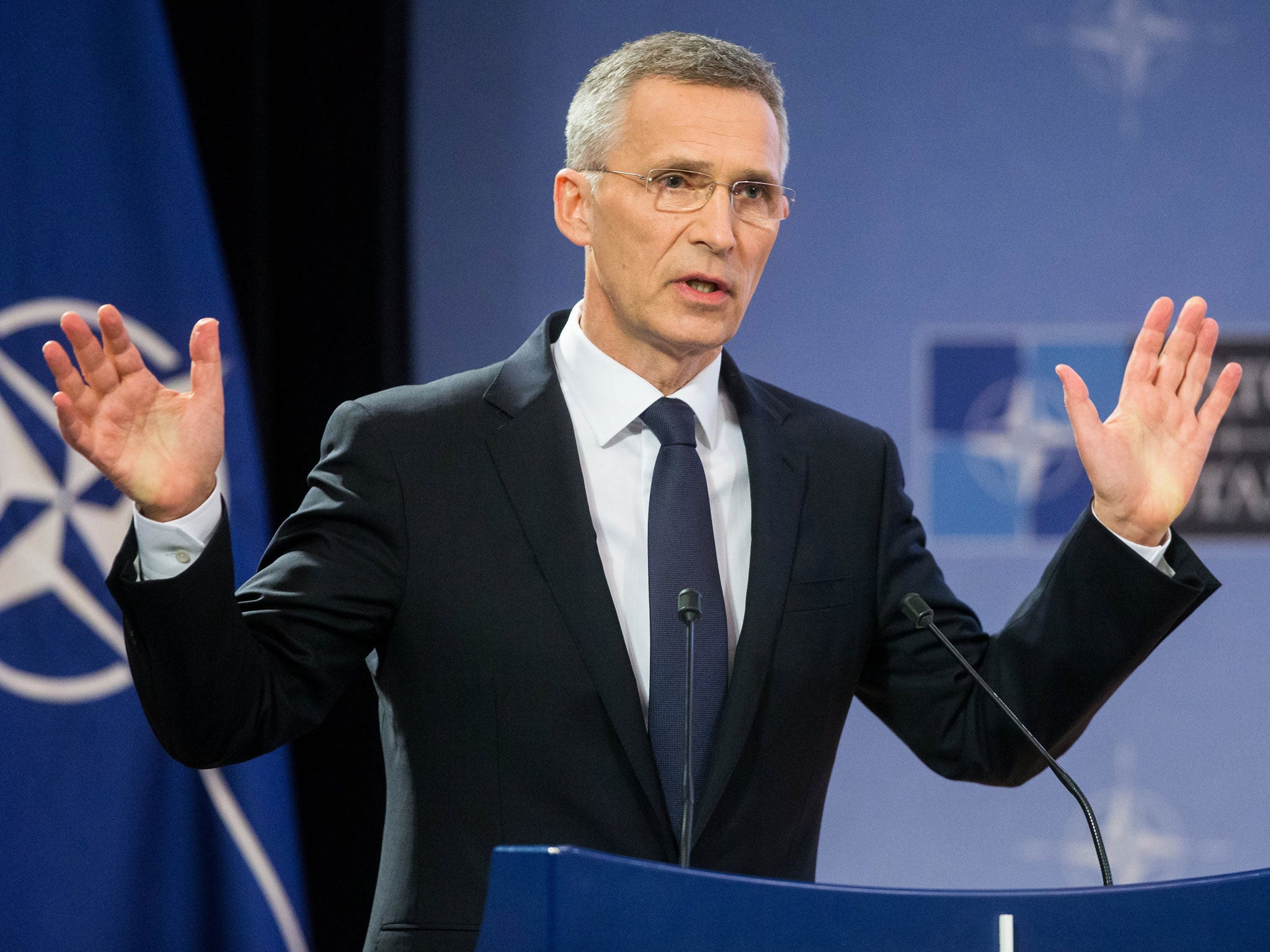Scotland 'would not get automatic membership of Nato if it voted for independence'
Secretary-general Jens Stoltenberg says an independent Scotland would 'not automatically' become part of the alliance

Your support helps us to tell the story
From reproductive rights to climate change to Big Tech, The Independent is on the ground when the story is developing. Whether it's investigating the financials of Elon Musk's pro-Trump PAC or producing our latest documentary, 'The A Word', which shines a light on the American women fighting for reproductive rights, we know how important it is to parse out the facts from the messaging.
At such a critical moment in US history, we need reporters on the ground. Your donation allows us to keep sending journalists to speak to both sides of the story.
The Independent is trusted by Americans across the entire political spectrum. And unlike many other quality news outlets, we choose not to lock Americans out of our reporting and analysis with paywalls. We believe quality journalism should be available to everyone, paid for by those who can afford it.
Your support makes all the difference.Nato's secretary-general Jens Stoltenberg has said an independent Scotland would "not automatically" become a member of the military alliance.
Speaking in Brussels after Nicola Sturgeon announced plans to hold a second independence referendum, he said Scotland voting to leave the UK would mean it also had to leave the defence bloc.
Mr Stoltenberg said an independent Scotland would have to gain the approval of all 28 allies before it could re-join as a new country.
"If it happens, then the UK will continue as a member of Nato but a new independent state has to apply for membership and then it is up to 28 allies to decide whether we have a new member," he told Sky News.
"All decisions in Nato are taken by consensus, so we need the consensus of all allies.
"By leaving the UK it will also be leaving Nato, but of course it is possible to apply for membership and then the allies would then decide whether the independent state would become a member of Nato."
However, Scotland would face the prospect of having its entry to the bloc challenged by Spain, which is wary of encouraging break-away states as it faces similar calls for independence in Catalonia.
Nato considers nuclear weapons a "core component" of its defence capability and the SNP's opposition to them may prove problematic for a future, independent Scotland's bid for membership.
Britain's current nuclear deterrent, Trident, is based on the Clyde near Glasgow and would likely be moved south of the border in the event of a 'Yes' vote for independence.
During the last Scottish independent debate, former UK ambassador to Nato Dame Mariot Leslie – who voted ‘Yes’ in the referendum - claimed “the other 28 Nato allies would see it in their interests to welcome an independent Scotland into Nato”.
But George Robertson, the British defence secretary between 1997 and 1999, suggested at the time that the SNP’s opposition to nuclear weapons would disrupt Scotland’s efforts to reapply for Nato membership.
Join our commenting forum
Join thought-provoking conversations, follow other Independent readers and see their replies
Comments